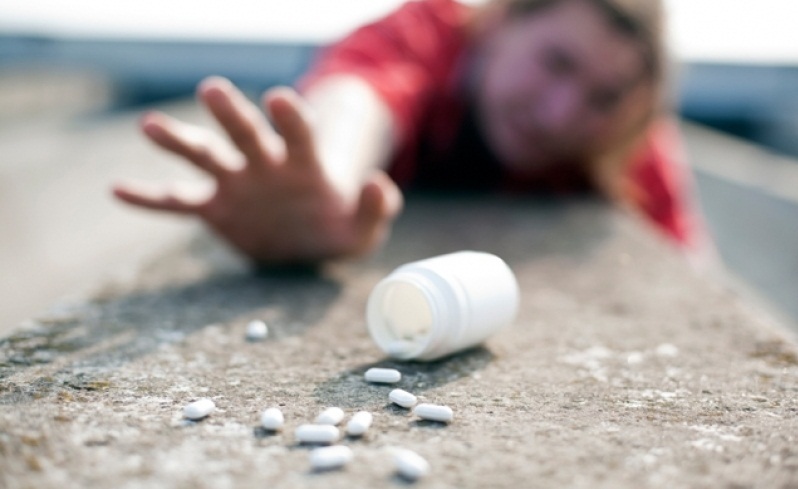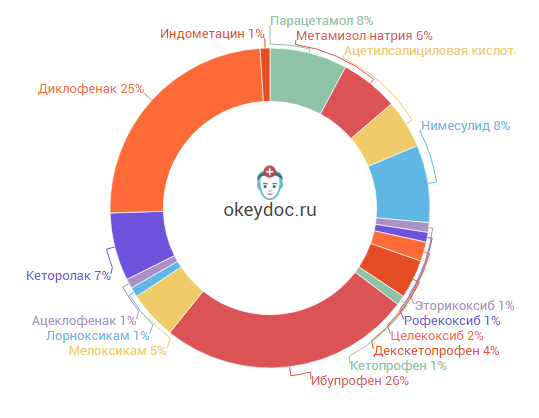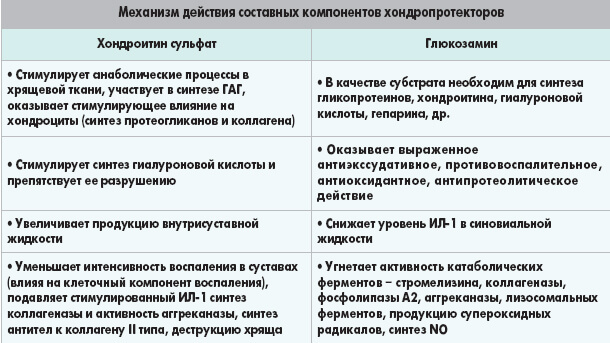Tranquilizers and alcohol: can I combine?
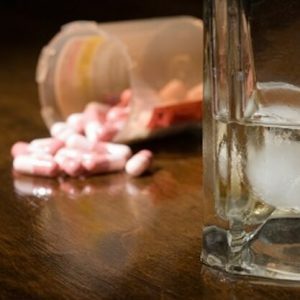 Doctors recommend refraining from drinking alcohol during the treatment with tablets.There are also drugs, the joint use of which, together with alcoholic beverages, is categorically contraindicated.It is a question of psychotropic preparations, in particular about tranquilizers.
Doctors recommend refraining from drinking alcohol during the treatment with tablets.There are also drugs, the joint use of which, together with alcoholic beverages, is categorically contraindicated.It is a question of psychotropic preparations, in particular about tranquilizers.
Interaction of tranquilizers and alcohol
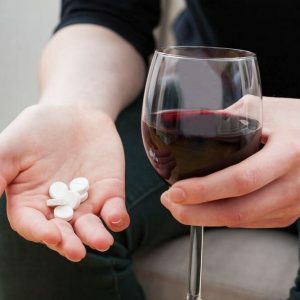 Tranquilizers are designed to treat neurotic disorders accompanied by anxiety, fear, and emotional stress.Preparations of this group have anti-anxiety( anxiolytic) and calming effects.
Tranquilizers are designed to treat neurotic disorders accompanied by anxiety, fear, and emotional stress.Preparations of this group have anti-anxiety( anxiolytic) and calming effects.
The mechanism of action of tranquilizers is based on the enhancement of the influence of the neurotransmitter GABA.It is a neurotransmitter that exerts a brake effect on the nervous system, resulting in the disappearance of anxiety and anxiety.However, tranquilizers, mainly of the benzodiazepine series, also have a miorelaxing effect due to the inhibition of spinal polysynaptic reflexes.
The most popular drugs from the group of tranquilizers are:
- Diazepam( Sibazon, Relanium);
- Phenazepam;
- Gidazepam;
- Oxazepam;
- Meprobamate;
- Atarax.
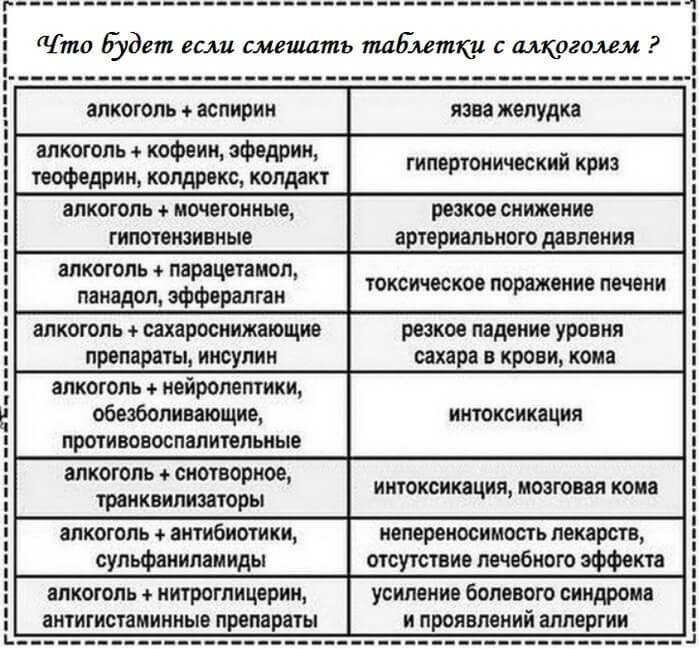
If you take an annotation for any drug from a group of tranquilizers there you can read that its use with alcohol is unacceptable.What happens with the simultaneous reception of tranquilizers with alcohol?Ethanol enhances the depressing effect of the tranquilizer on the nervous system. A similar combination is fraught with the appearance of such side effects:
- Lethargy, drowsiness;
- Dizziness;
- Headache;
- Dulling of emotional reactions;
- Violation of coordination;
- Decreased attention;
- Confusion.
No wonder that in this state, people often lose orientation in space and fall, this can lead to serious injuries.
But the most dangerous side effect of a combination of tranquilizers + alcohol is the inhibition of the respiratory center, which leads to the cessation of breathing and death.
With the combined use of alcohol and phenazepam, a "phenazepam sleep" is observed. This is a dream that is accompanied by:
- Involuntary defecation, urination;
- Vomiting with choking vomit;Stop breathing, palpitation.
- .
Assuming how these substances will interact with each other is difficult.It is not excluded the development of paradoxical reactions in the joint use of alcohol and tranquilizers.In this case, the person becomes irritable, aggressive, excited.He is able to commit uncontrollable actions, than he can harm himself and others.
Overdose with tranquilizers
Against the background of alcoholic intoxication, a person is in poor control of himself and can, for example, drink a larger dose of medicine than necessary.This can lead to an overdose of the drug.And it is characteristic that by themselves tranquilizers rarely cause severe complications in overdose.However, the combination of tranquilizers with alcohol significantly increases the toxicity of these drugs.
Signs of an overdose with tranquilizers:
-
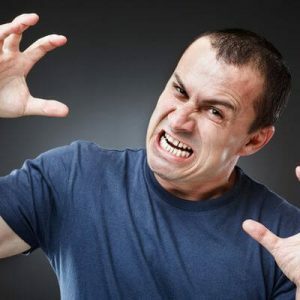 Daytime sleepiness or even prolonged sleep;
Daytime sleepiness or even prolonged sleep; - Nystagm;
- Blood pressure drop;
- Violation of coordination;
- Impaired consciousness, even to the point of coma;
- Inhibition of respiration;
- Cardiac arrest.What should I do if I get an overdose of tranquilizers?
First of all, call an ambulance.Then it is necessary to induce vomiting in a person.If the victim in the mind should invite him to drink activated charcoal.
In a hospital, gastric lavage is performed through the probe, infusion solutions are introduced to enhance diuresis.These manipulations are designed to remove tranquilizers from the body.Symptomatic therapy is also performed, antidote - Flumazenil may be administered.
Tranquilizers with abstinence syndrome
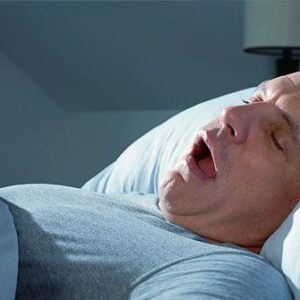 Combining the use of alcohol and tranquilizers can not be a fact.But it is worth to clarify that tranquilizers can be prescribed by a doctor to a patient with chronic alcoholism.In particular, these drugs are indicated in the development of withdrawal symptoms.This pathological condition develops in patients with alcoholism some time after stopping the use of alcoholic beverages.It manifests itself in the form of sweating, rapid heartbeat, tremor of hands, anxiety, irritability, feelings of guilt.An abstinence syndrome lasts for several days.To stop this condition, various drugs, including tranquilizers, are used.These drugs increase the positive effect of GABA, thereby reducing the overexcitation of neurons.
Combining the use of alcohol and tranquilizers can not be a fact.But it is worth to clarify that tranquilizers can be prescribed by a doctor to a patient with chronic alcoholism.In particular, these drugs are indicated in the development of withdrawal symptoms.This pathological condition develops in patients with alcoholism some time after stopping the use of alcoholic beverages.It manifests itself in the form of sweating, rapid heartbeat, tremor of hands, anxiety, irritability, feelings of guilt.An abstinence syndrome lasts for several days.To stop this condition, various drugs, including tranquilizers, are used.These drugs increase the positive effect of GABA, thereby reducing the overexcitation of neurons.
Please note! Abstinence syndrome and hangover are different medical concepts.The hangover is manifested the next morning after drinking alcohol and is expressed by a bad state of health, lasts no more than a day.At this time, the blood still contains ethanol, which means that tranquilizers can not be taken.This can lead to grave consequences.
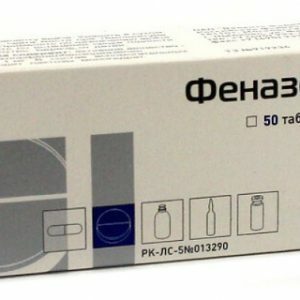 If the abstinence syndrome occurs in severe form and does not undergo correction, this can lead to metal psychosis.The initial signs of a beginner alcoholic psychosis are insomnia, mood swings, anxiety.Soon( usually closer to the evening) hallucinations, delirium.The patient is not oriented in the external environment, does not understand where he is, does not know the date.In this state, a person poses a danger to the people around him, because he is not critical to his condition, can commit aggressive acts.For the treatment of alcoholic psychoses, detoxifying agents are prescribed to purify the body of toxic products of ethanol decomposition.Eliminate mental disorders with tranquilizers.The use of these medicines removes anxiety, fear, hallucinations, delirium, normalizes sleep.Often prescribe diazepam, phenazepam, lorazepam, both injectively, and in the form of tablets.
If the abstinence syndrome occurs in severe form and does not undergo correction, this can lead to metal psychosis.The initial signs of a beginner alcoholic psychosis are insomnia, mood swings, anxiety.Soon( usually closer to the evening) hallucinations, delirium.The patient is not oriented in the external environment, does not understand where he is, does not know the date.In this state, a person poses a danger to the people around him, because he is not critical to his condition, can commit aggressive acts.For the treatment of alcoholic psychoses, detoxifying agents are prescribed to purify the body of toxic products of ethanol decomposition.Eliminate mental disorders with tranquilizers.The use of these medicines removes anxiety, fear, hallucinations, delirium, normalizes sleep.Often prescribe diazepam, phenazepam, lorazepam, both injectively, and in the form of tablets.
Grigorova Valeria, medical reviewer

